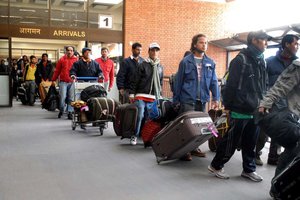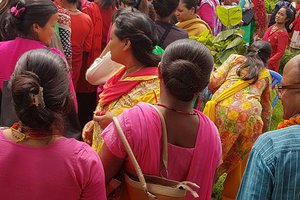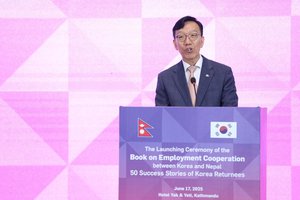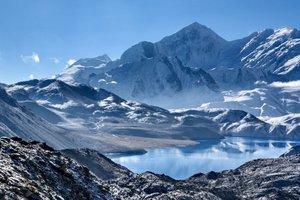Opinion
Proto-Nationalism Entrapped in the Musical Chair Circle of Political Parties and Floundering Economy Part-1: Context and Missed Opportunities
Proto-Nationalism Entrapped in the Musical Chair Circle of Political Parties and Floundering Economy Part-1: Context and Missed Opportunities
By Kedar Neupane Jun 26, 2025
The Iron Silk Road: How a Train to Tehran is Rewriting The World’s Map – And Why The Old Powers Are Terrified
This isn't just about shorter shipping times. It’s about sovereignty. For decades, the West, particularly the United States, has wielded control over the sea lanes like a trident. The Strait of Hormuz, that narrow Persian Gulf passage where 45% of China’s vital oil imports transit, wasn't just geography; it was a lever. Sanctions, blockades, the threat of naval interdiction – these were the tools used to enforce political will.
By Zakir Kibria Jun 25, 2025
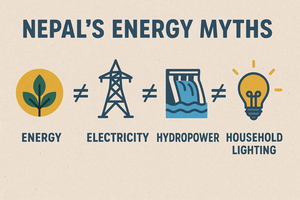
Nepal’s Energy Myths: Energy ≠ Electricity ≠ Hydropower ≠ Household Lighting
The forthcoming National Energy Security Policy should embrace a broader perspective, addressing all aspects of energy usage, accessibility, and resilience, beyond just electricity provision.
By Mukesh Ghimire; PhD Jun 20, 2025
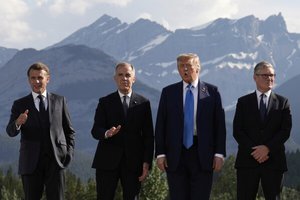
Navigating An Uncharted, Unravelling World Order
The subject of decline of great powers, indeed of civilizations, has been of interest to many scholars; and it might be useful to focus on the gist of what they had to say before using those insights to try and make sense of the here and now.
By Dipak Gyawali Jun 19, 2025
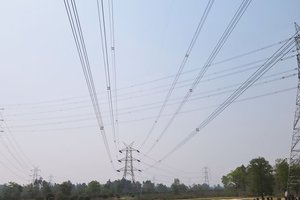
Power Sector Uncertainties Tracking Peril And Paradoxes
Nepal is a vulnerable country from energy security perspective. However, there are bright aspects, too. Nepal should not be scared of wet season surplus power, blaming Run-of-River (ROR) projects for this scenario.
By Prabal Adhikari Jun 18, 2025
Former Ambassador To People’s Republic Of China Acharya's 'Diplomatic Diary': A Collection Of "Autobiography " Including Diplomacy
The book 'Diplomatic Diary' by former Nepali Ambassador Rajeshwor Acharya, covering various topics in the diplomatic field, including Nepal-China relations, was published in 2079 BS.
By Shanker Man Singh Jun 17, 2025
Approval Of EIA-Related First And Last Reports At Once
Furthermore, the budget speech provisions to arrange for 'not to conduct Supplementary EIA' (SuEIA) after the approval of the EIA on the possible decline or increase of 10 percent of the trees before (tree) cutting as a part of site clearance.
By Batu Uprety Jun 14, 2025
Nepal’s Real Battle: Strengthening Democracy From Within
Should Nepal blindly align based on political ideology alone? If an “autocratic” neighbor offers vital infrastructure development that can lift thousands out of poverty, should we refuse it on principle, even if “democratic” partners move slower or offer aid laden with conditions? Conversely, do we turn a blind eye to undemocratic behavior by a “democratic” ally when it suits their geopolitical aims but not ours? Young Nepalis are pragmatic.
By Suva BC Jun 09, 2025
Reclaiming Nepal’s Budget From Hidden Hands
Broker capitalism in Nepal operates not on competition, productivity, or value creation, but rather thrives on rent-seeking behavior, political patronage, and informal power networks. A defining characteristic of this system is its preference for trading over building.
By Dr.Prabin Manandhar Jun 07, 2025
Museum Communication: A Prospect and Practice
The International Council of Museums (ICOM) defines a museum as “a not-for-profit, permanent institution in the service of society that researches, collects, conserves, interprets, and exhibits tangible and intangible heritage.
By Om Prakash Ghimire Jun 04, 2025
Latest Updates
- Tik Talker Rama Basnet released on bail of Rs 30,000
- 1 week ago
- PM Oli Urges Evey to Make Yoga a Daily Life
- 1 week, 5 days ago
- Neal’s First Flyover Construction Completed
- 1 week, 6 days ago
- Court Orders Two Important Order in Favor of Press Freedom
- 2 weeks ago
- Ministry of Foreign Affairs issued A Travel Advisory for the Middle East
- 2 weeks ago
- Government Has Started The Implemenation of Resolution of Sagarmatha Sambad: Minister Shahi
- 2 weeks, 1 day ago
- Journalist Pathak files writ petition in High Court against arrest warrant
- 2 weeks, 3 days ago
- Parliament was run in a tyrannical manner: Gyanendra Shahi
- 2 weeks, 4 days ago
- Nagrik-Arju Dispute: She Says - 'I Spoke With Shobha Gyawali, I Am Surprised To See Reaction That I threatened'
- 2 weeks, 6 days ago
- Durga Prasai remanded in custody, 32 released on bail in
- 2 weeks, 6 days ago
